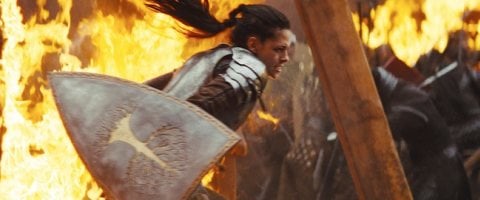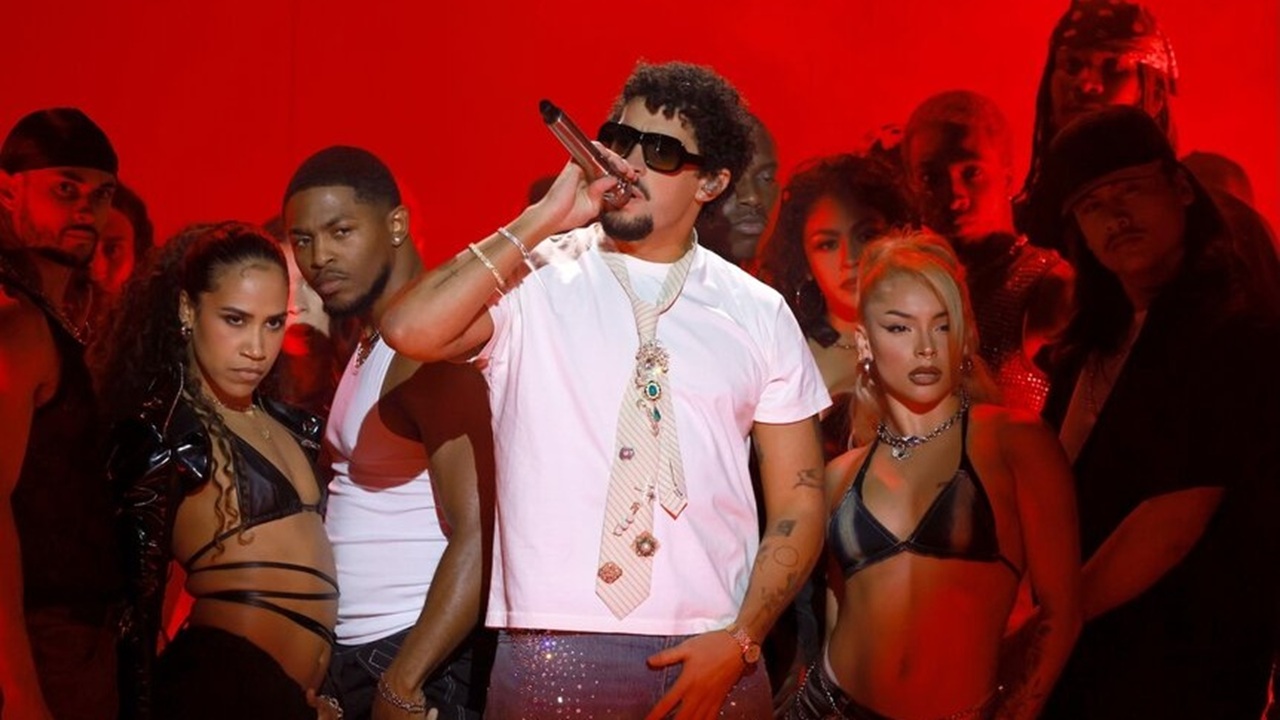How Snow White And The Huntsman Gets Female Empowerment Wrong

Your Daily Blend of Entertainment News
You are now subscribed
Your newsletter sign-up was successful
Snow White and the Huntsman is not an especially good movie, as you can read in our review. But more than that, it's not a good story of female empowerment, which is strange considering all the ads featuring Kristen Stewart in armor, implying that this isn't your classic fairy tale story. Sure, Snow White dons the armor and learns how to use a sword, but if you look beneath the surface of the story-- the way it depicts women as being powerful for their beauty and Snow White's implied "virginity" as all-important-- it gets a little less progressive, and a lot more like the fairy tales it's supposedly leaving behind.
To talk more about this, Katey and Kristy hopped on gchat and hashed out all the ways Snow White and the Huntsman is pretty much the opposite of the liberated girl-power movie it's trying to be. Read more below.
KATEY: So Kristy, I'm going to start this conversation by shamelessly plugging this week's Operation Kino podcast, where you were a guest this week as we reviewed Snow White and the Huntsman. During that conversation I was surprised by how much you noticed about the movie and its failings, not just the obvious story stuff but in the subtext too.
KRISTY: If I'm repeating myself too much, let me know. But I feel there's plenty to sound off on here.
KATEY: Basically, you were saying that movie doesn't just fail as a story, but it's pretending to be a female empowerment story when it's pretty much the opposite. Can you get into the short version of why you think that?
KRISTY: Sure. I think Snow White and The Huntsman is selling itself as a re-imagination of this damsel-in-distress fairy tale by marketing images of Kristen Stewart--who plays Snow White--in armor, rushing into battle. It suggests that she is the self-rescuing princess archetype that has evolved. However, the film in no way pays off on that expectation, instead painting her as very typical damsel in distress, who only suits up into armor for the final few minutes, in which its commented how "fetching" she looks in chain mail. She's no role model, basically. She's embarrassing.
KATEY: So before we get into details about comments made by Chris Hemsworth, lets break this down. Obviously we were totally on board with the idea of an empowered Snow White, and all the images from the film-- her in armor, her rallying troops-- seemed really promising. But it's almost like they fall into the trap of the Snow White fairy tale basics, in which she spends her entire youth locked in a castle and is prized for her beauty, and can never get out of it. From the very start, when it's the Huntsman narrating and not her, it feels off on the wrong foot.
Your Daily Blend of Entertainment News
KRISTY: Exactly. It's really his story. Which I wouldn't mind if the film committed to that idea, but instead it continues to masquerade as if its about SW and the evil queen Ravenna. But then presents them are tiresome archetypes of virgin and whore respectively.
KATEY: You've made a really interesting point about the rape parallels in the way Snow White is so "pure," which I want to get into. But there's also this one segment of the movie that's really the only successful thing, when they come across this village of women whose men are all off leading the rebellion against the Queen, and they've scarred their faces so Ravenna won't come and kidnap them to "steal" their beauty. It was this totally interesting parallel to something like devout Muslim women wearing veils, or the entire notion of rape culture where your beauty is a liability, and it hints at versions of this movie that could have done something so, so interesting. Did you like that part as much as I did?
KRISTY: It was the only sequence that really resonated with me. And I think you're right, there was an opportunity to say something about how women's good looks can be dangerous. Sadly, the film threw that opportunity away by focuses so intently on the value of beauty. Now, I understand that being Snow White the queen's vanity is a key plot point, but what's reprehensible is that this idea of beauty equaling power pervades the entire movie. Snow White can defeat the queen because she is prettier, and the refugee camp she finds has women who have purposely scarred themselves to be considered useless to the queen. It's like they decided if they wanted the movie to be about women it had to be about being pretty.

KATEY: Well, again, I'm kind of down with the exploration of beauty being power but also a danger, like in that women's scene. But it's like it explores it in that one part and otherwise defaults to "you are only important if you're pretty," instead of critiquing it. It's like an earlier draft had all this interesting stuff, and they gradually chipped away at it.
KRISTY: Exactly. It becomes surface level, which would be funny if it weren't so infuriating. The only danger element explored was really the Queen's jealousy, because while rape was repeatedly implied/threatened it never felt like an actual danger because the film is so defanged of consequences. And so SWATH becomes a movie about woman on woman jealousy and rivalry in the most archetypal of terms. Being beautiful and sexy is great, but being both and virginal is better!
KATEY: I dunno-- Charlize gets by far the better costumes. I'm kind of on her side. In seriousness, though, I don't feel enraged by this movie, just bored and kind of resentful. Do you feel like it's legitimately damaging in some way for a movie this unsuccessful to try and go all girl-power?
KRISTY: I do, because it's misleading to the very audience its marketing suggests it's speaking to.
KATEY: Kind of reminds me of Twilight, which has never actually marketed itself as empowering, but is a huge hit among teenage girls who really, really don't need to be told they should commit to their boyfriend at 17.
KRISTY: Exactly. Just because it has a female at its center, doesn't mean it's empowering. I mean, SW isn't made a sex object, but instead they go to the other extreme where her power is purity paired with her prettiness, while the old, evil queen is a succubus who uses her allure to kill kings and topple kingdoms. It's ultimately about the danger of a beautiful, sex-having woman, which is obviously not empowering.
KATEY: I'd like to take this moment to pitch our alternate version of this movie, in which Snow White does it with the Huntsman, loses the "power" of her implied virginity, then has to learn actual skills in order to defeat the Queen.
KRISTY: Yeah. Wouldn't that have been fabulous? Instead of all this declawed sexuality that permeates but never penetrates, what if she and the Huntsman got down in the forest, then she discovered she was no longer this princess instilled with the power of being pure as the driven, and instead needed to actually learn to take up a sword and defend herself, as opposed to getting a quick, "you're small, so stab someone right in the heart" lesson. You know, I saw in an interview that Kristen Stewart was surprised that the director never gave her any kind of stage combat training, he just handed her a sword and said, "Don't die." It shows.
KATEY: Yeesh, and that points to a ton of the other huge problems in this movie. So I want to end by recommending everyone see Tangled, which is a female empowerment fairy tale in which, at the end, the heroine learns specifically to let go of her superpowered beauty. Any recommendations from you?
KRISTY: I'd also suggest The 10th Kingdom mini-series and Enchanted. Both are far more successful at creating self-rescuing princesses that are fun, engaging and empowering.
KATEY: The good news is Snow White and the Huntsman probably won't do that well this weekend. So maybe no one will ever see it!
KRISTY: I really hope not. But I do worry about the Twilight effect. But I guess it didn't save Abduction.
KATEY: HA. And I think the new rule of the internet is "As soon as someone brings up Abduction, the conversation is over." Thanks for going all feminist theory with me!
KRISTY:Happy to do it.
